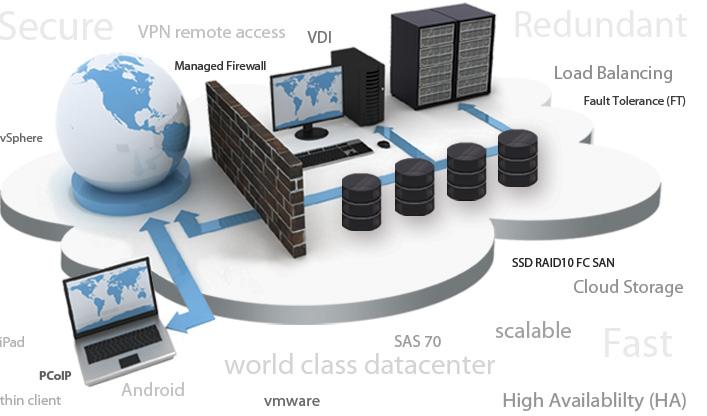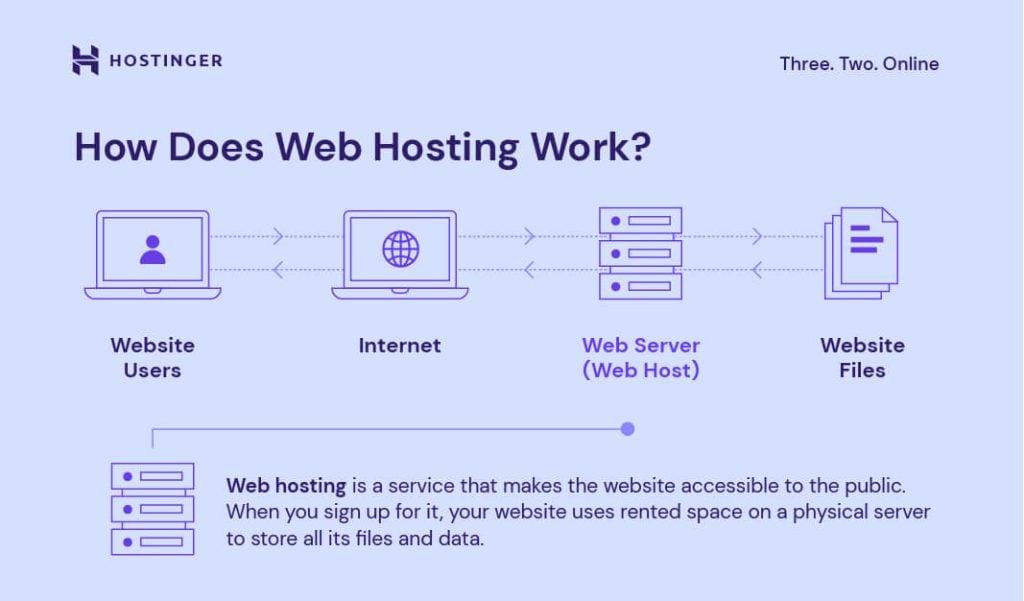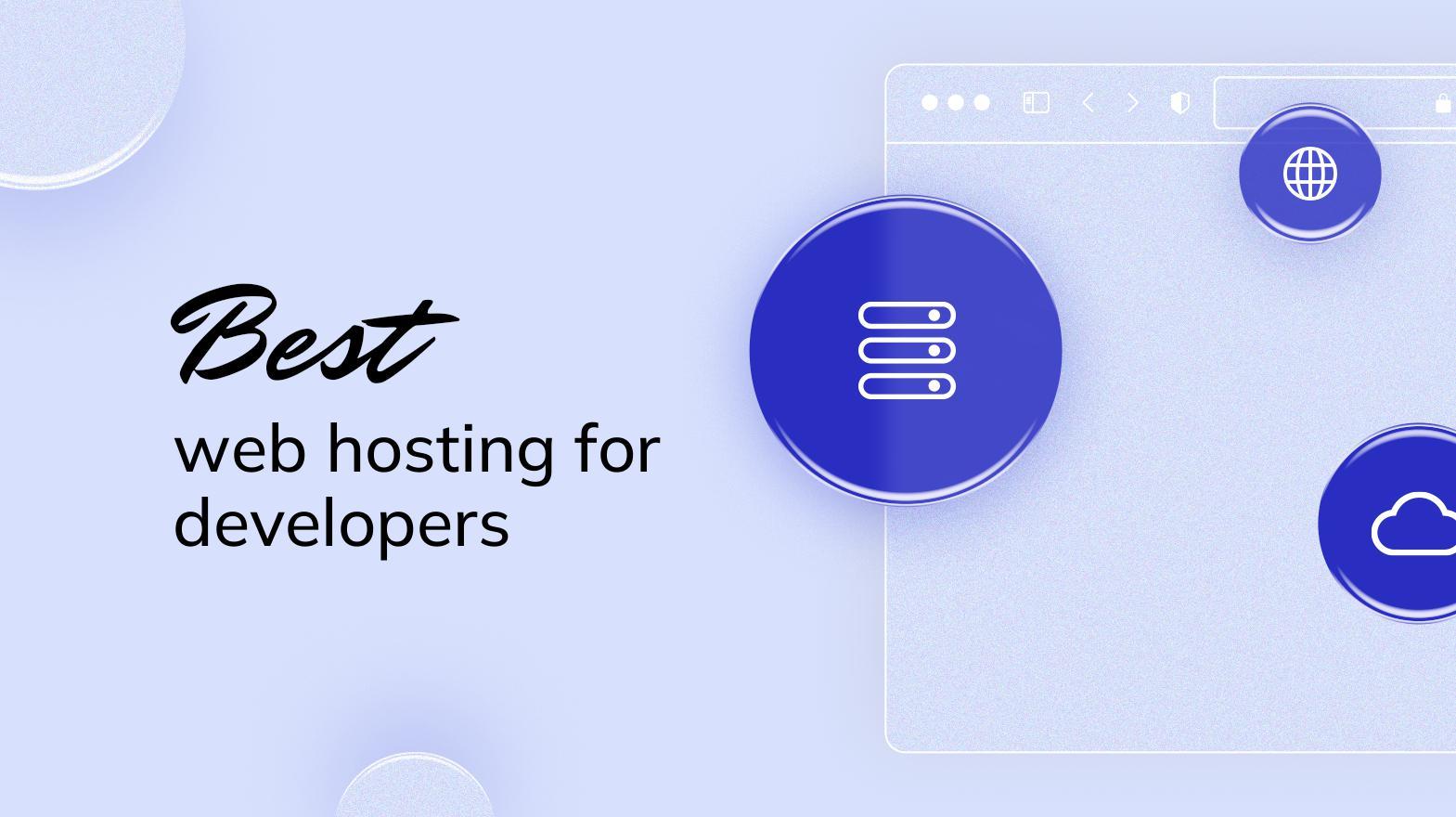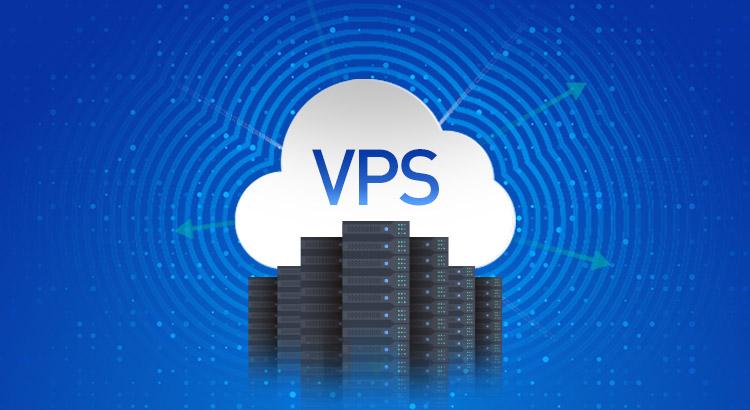
In today’s fast-paced digital landscape, small businesses are constantly on the lookout for tools that can give them a competitive edge. One of the most crucial decisions you’ll make is choosing the right cloud server hosting service. With so many options available, it can feel overwhelming to find what truly fits your business’s needs. But fear not! We’re here to simplify the process for you. In this article, we’ll explore the 5 Best Cloud Server Hosting Options for Small Businesses in 2025. Whether you’re just starting out or looking to upgrade your existing setup, we’ll dive into the features that matter most, helping you make an informed choice that propels your business forward. So, grab a cup of coffee, and let’s discover how the right cloud server can empower your growth and streamline your operations!
Understanding the Importance of Cloud Server Hosting for Small Businesses
As small businesses navigate the competitive landscape, the significance of cloud server hosting continues to grow. It empowers entrepreneurs to scale operations, reduce costs, and enhance overall efficiency without the burden of maintaining physical infrastructure. The cloud offers a robust infrastructure that is not only affordable but also highly reliable, making it an ideal choice for companies looking to innovate and expand.
One of the key advantages of cloud server hosting is its scalability. Small businesses can start with minimal resources and easily expand their capacity as they grow. This means you won’t have to invest in expensive hardware upfront, allowing you to allocate resources where they’re most needed. The flexibility of cloud services means you can adjust your plan based on your current demands, which is especially beneficial during peak seasons.
Moreover, cloud hosting provides enhanced security features that are often superior to traditional servers. With data breaches becoming increasingly common, having a reliable security framework in place is crucial. Leading cloud hosting providers invest significantly in security measures, including data encryption, firewalls, and regular backups. This allows small businesses to rest easy knowing their sensitive information is protected from potential threats.
Another essential aspect is the cost-effectiveness of cloud server hosting. Small businesses often operate on tight budgets, and cloud services can significantly lower IT expenses. Instead of dealing with high upfront costs for servers and maintenance, businesses can opt for a pay-as-you-go model. This model ensures that companies only pay for what they use, making it a financially wise choice for startups and smaller operations.
Additionally, cloud hosting enhances collaboration and remote work capabilities. With the rise of remote work, having a cloud-based system allows employees to access data and applications from anywhere in the world. This flexibility fosters a more productive workforce and opens up opportunities for talent acquisition beyond geographical limitations. Team members can collaborate seamlessly, regardless of their location, which is a significant asset for any small business.
Lastly, consider the reliability that cloud server hosting provides. Downtime can cost businesses money and damage their reputation. Most cloud hosting services guarantee 99.9% uptime, ensuring that your website and applications are always available to customers. This reliability can enhance customer satisfaction and trust, which are vital for long-term success.
| Benefit | Description |
|---|---|
| Scalability | Easily adjust resources based on demand. |
| Security | Advanced measures to protect sensitive data. |
| Cost-Effectiveness | Pay only for what you use, reducing IT costs. |
| Collaboration | Access data from anywhere, improving teamwork. |
| Reliability | High uptime guarantees ensure business continuity. |
Given these compelling benefits, it’s clear that cloud server hosting is not just a trend; it’s a crucial component for the success of small businesses in today’s digital age. Embracing cloud technologies not only prepares your business for future growth but also positions you competitively in your industry.
Key Features to Look for in Cloud Server Solutions
When searching for the right cloud server solution, several key features can significantly influence your choice. First and foremost, scalability is essential. As your business grows, your hosting needs may change. A great cloud server should allow you to easily scale resources up or down without incurring complicated processes or downtime.
Another vital feature is reliability and uptime guarantees. Look for providers that offer a minimum of 99.9% uptime, ensuring that your website and applications remain accessible to customers. A reliable service minimizes the risk of lost revenue and customer dissatisfaction associated with downtime.
Consider the security measures in place. Data breaches can be catastrophic for small businesses. Hence, choose a provider that offers robust security features such as data encryption, regular backups, and DDoS protection. These elements are crucial in safeguarding your sensitive business information and maintaining customer trust.
Performance is another pivotal feature. The speed at which your server operates directly affects user experience. Check the server specifications, like CPU power and RAM availability, to ensure it can handle your expected traffic efficiently. A fast and responsive website can lead to higher conversion rates and customer satisfaction.
Additionally, customer support should be a top priority. Look for providers that offer 24/7 customer service through multiple channels, including live chat, phone, and email. Quick and knowledgeable support can be a lifesaver when technical issues arise or when you need guidance in managing your server.
Cost-effectiveness is also critical. Evaluate pricing structures carefully. Some providers might offer attractive introductory rates that increase significantly after renewal. Look for transparent pricing models that clearly outline what services are included and any potential additional costs.
Lastly, assess the ease of use and management features. A user-friendly control panel can make a world of difference, especially for small business owners who may not be tech-savvy. Look for solutions that provide intuitive dashboards, one-click installations, and easy integration with other tools you use.
| Feature | Importance | Considerations |
|---|---|---|
| Scalability | High | Ability to adjust resources easily |
| Uptime Guarantees | Critical | Aim for 99.9% or higher |
| Security | Essential | Data encryption and backups |
| Performance | Very Important | Fast load times for better UX |
| Customer Support | Very Important | 24/7 support availability |
| Cost-Effectiveness | Important | Transparent pricing models |
| Ease of Use | Important | User-friendly interfaces |
The Rise of Cloud Technology: Why Your Business Needs It Now
The evolution of cloud technology has transformed the way small businesses operate, enabling them to streamline processes, enhance collaboration, and reduce costs. As we look toward 2025, the need for reliable cloud server hosting solutions has never been more pressing. With the rapid pace of digital transformation, adopting cloud services can give your business a competitive edge.
One of the main advantages of cloud technology is its scalability. Small businesses can easily adjust their resources based on fluctuating demand without the burden of maintaining physical servers. This flexibility allows companies to grow without the extensive upfront investment associated with traditional IT infrastructure. Imagine being able to upscale your operations during peak seasons and scale back during quieter times—all with just a few clicks!
Another critical benefit is accessibility. With cloud server hosting, your team can access essential data and applications from any location, at any time, as long as they have an internet connection. This feature is particularly advantageous in today’s world, where remote work has become a standard practice. By implementing cloud solutions, you empower your employees to work more effectively and collaboratively, regardless of where they are situated.
Moreover, cloud technology enhances the security of your data. Leading cloud providers invest significantly in security measures, often employing advanced encryption methods and regular backups to protect sensitive information. For small businesses that may lack the resources to implement robust security protocols, utilizing a cloud server can offer peace of mind, knowing that their data is safeguarded by professionals.
When considering cloud server hosting options, evaluating your business’s specific needs is crucial. Here are some factors to keep in mind when choosing a provider:
- Cost-effectiveness: Look for solutions that fit your budget without compromising quality.
- Customer support: Reliable support can make a significant difference in resolving issues quickly.
- Performance: Ensure the hosting service can deliver optimal speed and uptime.
- Customization: The ability to tailor the services to meet your unique requirements is vital.
| Hosting Provider | Key Features | Starting Price |
|---|---|---|
| HostGator | Easy scalability, 24/7 support | $2.75/month |
| DigitalOcean | Flexible plans, great for developers | $5/month |
| AWS | Comprehensive tools, high reliability | Pay-as-you-go |
| Google Cloud | Strong security, global reach | $10/month |
the rise of cloud technology is not just a trend; it’s a necessity for small businesses aiming for growth and efficiency. By investing in cloud server hosting now, you set your business up for success in the future. Don’t let your competitors outpace you—embrace the cloud and watch your business thrive!

Exploring the Top Cloud Server Hosting Options for Small Businesses
As small businesses increasingly turn to cloud technology, selecting the right cloud server hosting can be a game-changer. With a plethora of options available, it’s essential to consider factors such as performance, reliability, scalability, and cost-effectiveness. Here are some of the top contenders in the cloud server hosting arena for 2025.
1. Amazon Web Services (AWS)
AWS remains a frontrunner due to its extensive range of services and global reach. Tailored for small businesses, AWS offers:
- Scalability: Effortlessly scale resources as your business grows.
- Pay-as-you-go pricing: Only pay for what you use, making it budget-friendly.
- Robust security features: Keep your data safe with top-notch security protocols.
With an easy-to-use management console, AWS empowers businesses to control their cloud environments without needing extensive technical expertise.
2. Google Cloud Platform (GCP)
Another heavyweight in cloud hosting, GCP, is celebrated for its data analytics and machine learning capabilities. Businesses can benefit from:
- Integration with AI tools: Enhance operations with advanced analytics and AI.
- Flexible pricing models: Choose from various pricing options that best suit your needs.
- High performance: Benefit from Google’s global infrastructure for fast processing.
GCP is ideal for businesses looking to harness the power of data and AI to drive growth and innovation.
3. DigitalOcean
For startups and small businesses seeking simplicity and affordability, DigitalOcean is an excellent choice. Key features include:
- Simple user interface: Get started quickly with an intuitive management platform.
- Cost-effective plans: Enjoy predictable pricing with straightforward plans.
- Developer-friendly tools: Access a suite of tools that make app development easier.
DigitalOcean empowers small businesses to deploy applications rapidly without the complexities often associated with cloud services.
4. Microsoft Azure
Microsoft Azure offers a rich set of features, making it suitable for businesses already invested in the Microsoft ecosystem. Advantages include:
- Seamless integration: Work effortlessly with other Microsoft products.
- Comprehensive compliance: Stay compliant with industry standards and regulations.
- Robust support: Access 24/7 customer service and extensive documentation.
For businesses looking to leverage existing Microsoft tools, Azure is an ideal choice that facilitates seamless operation.
5. Vultr
Vultr is gaining popularity among small businesses for its straightforward approach to cloud hosting. Highlights include:
- Global data centers: Deploy your applications in multiple locations around the world.
- Customizable resources: Choose the exact resources you need for optimal performance.
- Simple billing: Transparent pricing with no hidden fees.
Vultr is perfect for those who need a no-frills, efficient cloud solution without overwhelming complexity.
Comparative Overview
| Provider | Key Feature | Starting Price |
|---|---|---|
| AWS | Extensive Services | Pay-as-you-go |
| GCP | AI Integration | Flexible Pricing |
| DigitalOcean | User-Friendly | $5/month |
| Azure | Microsoft Integration | $15/month |
| Vultr | Global Data Centers | $5/month |
Choosing the right cloud server hosting solution is crucial for small businesses looking to reduce overhead costs and enhance operational efficiency. Each of these providers offers unique features tailored to meet the diverse needs of small enterprises. Evaluate your business requirements, and choose the option that best aligns with your growth strategy.

In-Depth Review of Option One: Performance and Value Unpacked
Performance and Value Unpacked
When evaluating Option One, it becomes evident that performance is at the forefront of its design. With a robust infrastructure that prioritizes speed and reliability, this cloud server hosting solution seamlessly supports small businesses as they scale. One of the standout features is its lightning-fast SSD storage, which significantly reduces load times for applications and websites. This speed boost not only enhances user experience but also contributes positively to SEO rankings—an essential factor for any small business aiming to establish a strong online presence.
In terms of server uptime, Option One boasts a commendable 99.9% uptime guarantee. This level of reliability is crucial for businesses that rely on their online services to drive sales and customer engagement. With minimal downtime, users can trust that their websites and applications will remain accessible to customers, reinforcing credibility and trust in their brand.
Another aspect worth highlighting is the scalability of the hosting plans. As your business grows, so do your hosting needs. Option One offers a range of flexible plans that allow for easy upgrades without the hassle of migrating to a different provider. This adaptability ensures that you won’t find yourself outgrowing your hosting solution just as your business begins to flourish.
From a financial perspective, Option One delivers solid value. The pricing structure is transparent, with no hidden fees, which is particularly appealing for small business owners who need to manage their budgets carefully. Here’s a quick overview of the pricing tiers:
| Plan Type | Monthly Price | Storage | Bandwidth |
|---|---|---|---|
| Basic | $15 | 50 GB SSD | 1 TB |
| Standard | $30 | 100 GB SSD | 2 TB |
| Premium | $50 | 200 GB SSD | Unlimited |
In addition to the competitive pricing, Option One provides excellent customer support. Their team of experts is available 24/7 via live chat, phone, and email, ready to assist with any technical issues or questions you might have. This level of support is invaluable for small business owners who may not have a dedicated IT team to handle technical challenges.
Lastly, it’s worth mentioning the user-friendly control panel that comes with Option One’s hosting service. Designed with simplicity in mind, even those with minimal technical expertise can navigate it effortlessly. Setting up domains, managing email accounts, and installing apps can be done with just a few clicks, allowing business owners to focus more on their core operations rather than getting bogged down in technical details.
Why Option Two Stands Out: A Focus on Security and Support
When it comes to choosing a cloud server hosting solution, security and support are paramount, especially for small businesses that can’t afford to overlook these critical aspects. Option Two rises above the competition by implementing robust security measures that not only protect your data but also instill confidence in your clients and partners. This is not just about maintaining compliance; it’s about building a reputation as a trustworthy entity in your industry.
With end-to-end encryption, your data is safeguarded at every level. This feature ensures that sensitive information remains confidential, whether it is stored or being transmitted. Coupled with regular security updates and vulnerability assessments, this hosting option makes it incredibly difficult for cyber threats to compromise your operations.
Another striking feature of Option Two is its 24/7 customer support, which is critical for small businesses that may not have in-house IT teams. Imagine having the reassurance of knowing that expert help is just a call or click away, any hour of the day. This constant support can drastically reduce downtime and ensure that any issues are resolved swiftly, allowing your business to keep running smoothly without major interruptions.
Additionally, the dedicated account managers provided with this option offer a personalized touch that sets it apart. These professionals understand the unique challenges small businesses face and can tailor solutions that meet your specific needs. This level of service not only enhances your operational efficiency but also fosters a long-term partnership that can contribute to your business growth.
Investing in Option Two means you also gain access to powerful tools designed for proactive security monitoring. This includes real-time alerts that notify you of potential threats before they escalate into serious issues. Such proactive measures are invaluable, ensuring your business can respond swiftly and effectively to any potential security breach.
| Security Feature | Benefit |
|---|---|
| End-to-End Encryption | Protects sensitive data both at rest and in transit |
| 24/7 Customer Support | Immediate assistance to minimize downtime |
| Dedicated Account Managers | Personalized service tailored to your business needs |
| Proactive Security Monitoring | Real-time alerts to mitigate threats before they escalate |
let’s not forget about the scalability that Option Two offers. As your business grows, so do your security and support needs. This hosting provider understands that small businesses often evolve, and they have implemented a flexible system that can adapt to your changing requirements without compromising on security or assistance.
By choosing Option Two, you’re not just selecting a cloud server; you’re opting for peace of mind, knowing that you have a reliable partner dedicated to securing your digital assets and supporting your business at every turn. This focus on security and support is what truly sets it apart from the rest.

Discovering the Benefits of Option Three: Scalability and Flexibility
When it comes to running a small business, having the right cloud server hosting solution is crucial, especially when considering the demands of growth and change. One of the standout features of many cloud hosting options is their inherent scalability and flexibility. This means that as your business evolves, your hosting capabilities can adapt seamlessly to meet your needs.
Imagine starting with a modest amount of resources, only to find that demand for your services has surged. With traditional hosting, you might find yourself scrambling to upgrade your infrastructure or facing downtime while you make necessary changes. However, with cloud hosting, you can effortlessly scale your resources up or down, ensuring you only pay for what you use. This flexibility allows you to:
- Respond to Traffic Surges: Handle unexpected spikes in traffic without compromising performance.
- Optimize Costs: Scale back during slower periods and save on unnecessary expenses.
- Enhance User Experience: Maintain fast loading times and reliability regardless of demand.
Another key advantage of this approach is the ability to customize resources to fit specific business needs. Whether you’re a budding startup or an established enterprise, you can choose the amount of storage, bandwidth, and processing power that best matches your operational requirements. This level of customization ensures you won’t be paying for features that you may not need at the onset.
Moreover, cloud hosting providers often offer a variety of plans to suit different stages of business growth. Here’s a quick look at some common options:
| Plan Type | Features | Ideal For |
|---|---|---|
| Startup | Basic resources, entry-level support | New businesses |
| Growth | Increased resources, enhanced support | Expanding businesses |
| Enterprise | Custom solutions, dedicated support | Large organizations |
This tiered approach not only aligns perfectly with growth trajectories but also mitigates risks associated with overcommitting to a large, expensive plan when you’re just getting started. The ability to upgrade your plan as your business scales means that you can maintain operational efficiency without the fear of sudden costs.
Beyond scalability, cloud hosting also offers the flexibility to integrate with other tools and platforms that your business may rely on. Whether you need to connect with CRM systems, eCommerce platforms, or analytics tools, the ability to easily integrate is vital for maintaining operational flow and enhancing productivity.
the scalability and flexibility inherent in cloud server hosting present an invaluable advantage for small businesses aiming to thrive in today’s fast-paced environment. By embracing these features, you position your business not just to withstand the test of time, but to flourish with every opportunity that comes your way.

How Option Four Enhances Collaboration and Remote Work
In today’s fast-paced digital landscape, effective collaboration and remote work have become paramount for small businesses. Option Four stands out by providing tools designed not only for connectivity but also for fostering teamwork across distances. With its suite of features, it ensures that teams can collaborate seamlessly, no matter where they are located.
One of the key strengths of this platform is its real-time collaboration capabilities. Team members can work on documents simultaneously, allowing for immediate feedback and iterative progress. This feature eliminates bottlenecks often encountered in traditional workflows and paves the way for innovation and creativity. Imagine the possibilities when your team can brainstorm, edit, and finalize proposals all in one place, without the need for tedious email chains.
The platform also integrates effectively with popular communication tools. Whether it’s video conferencing, chat applications, or project management software, Option Four ensures that all your communication stays centralized. This integration helps eliminate confusion and keeps everyone on the same page, enhancing productivity. You can set reminders, share files, and update project statuses without switching between multiple apps, saving valuable time and effort.
Another standout feature is the robust security protocols that guarantee your confidential data remains protected. In an era where cyber threats are prevalent, knowing that your information is secure can significantly enhance your team’s confidence in remote work. Option Four’s commitment to data security means that your team can focus on collaboration without worrying about potential breaches or data loss.
Let’s look at how these features translate into tangible benefits for your business:
| Feature | Benefit |
|---|---|
| Real-time Collaboration | Faster project completion and enhanced creativity. |
| Integrated Communication Tools | Streamlined workflows and reduced confusion. |
| Strong Security Measures | Increased confidence in data protection. |
| Cloud Accessibility | Work from anywhere, anytime, on any device. |
Additionally, Option Four offers cloud accessibility, allowing team members to work from any location, thereby breaking down geographical barriers. This flexibility is particularly beneficial for small businesses that may not have the resources for a physical office. Employees can engage in their tasks from home, on the go, or while traveling, making work-life balance more achievable.
the user-friendly interface ensures that even those less tech-savvy can navigate the platform effortlessly. This is crucial for small teams where every member’s input is valuable. Less time spent on learning a complicated system means more time dedicated to the work that drives your business forward.
Unveiling the Cost-Effectiveness of Option Five: Budget-Friendly Solutions
When it comes to managing a small business, every dollar counts. That’s why exploring budget-friendly cloud server hosting options can be a game-changer. These solutions provide the perfect balance of performance, reliability, and affordability, ensuring that you can focus on growing your business without breaking the bank.
One of the most appealing aspects of option five is the flexibility it offers. Many providers allow you to scale your resources up or down as needed. This means you only pay for what you use, which is ideal for small businesses that may experience fluctuations in demand. Imagine launching a new marketing campaign and needing more bandwidth temporarily—budget-friendly cloud hosting makes this seamless.
Moreover, the cost savings associated with cloud hosting can be significant. Traditional hosting solutions often come with hefty upfront costs for hardware and maintenance. In contrast, cloud servers operate on a pay-as-you-go model, which can drastically reduce your initial investment. Here’s a quick comparison:
| Traditional Hosting | Cloud Hosting |
|---|---|
| High upfront costs | Pay-as-you-go pricing |
| Fixed resources | Scalable resources |
| Maintenance fees | No maintenance fees |
| Limited flexibility | Flexible plans |
In addition to immediate cost benefits, many cloud hosting providers offer enhanced security features at no extra charge. With built-in firewalls, regular backups, and automatic updates, you can rest easy knowing your data is protected without additional investment. This is especially crucial for small businesses that might not have the resources to hire dedicated IT staff.
Another significant advantage is the accessibility that cloud servers provide. Your team can collaborate from anywhere, as long as they have internet access. This not only improves productivity but also cuts down on operational costs associated with maintaining a physical office space. Whether your employees are working remotely or on-site, the cloud ensures that they have the tools they need at their fingertips.
many budget-friendly cloud hosting options come with robust customer support. Small businesses often can’t afford downtime, making reliable support essential. Look for providers that offer 24/7 customer service and extensive knowledge bases to help you troubleshoot any issues that may arise.
selecting a cost-effective cloud server hosting solution can empower small businesses by offering flexibility, security, and unparalleled support—all while keeping a close eye on the bottom line. As you consider your hosting options for 2025, let the benefits of these budget-friendly solutions guide your decision-making process.

Comparative Analysis: Which Cloud Server Best Fits Your Business Needs
When it comes to choosing the right cloud server for your small business, it’s essential to evaluate your specific needs against what each provider offers. With numerous options available in 2025, making an informed decision can significantly impact your business’s efficiency and growth. Let’s dive into a comparative analysis of the top cloud server hosting options for small businesses this year.
First off, consider Scalability. As your business grows, so do your operational demands. Look for a cloud server that allows you to easily scale resources up or down without incurring hefty fees. For instance, providers like AWS and Google Cloud offer flexible scaling solutions, making them ideal for businesses with fluctuating workloads.
Next, we must address Cost-effectiveness. Small businesses often operate with tight budgets, so it’s crucial to choose a cloud server that offers a transparent pricing structure. DigitalOcean and Vultr are popular choices that provide affordable plans without sacrificing performance. Their pay-as-you-go models allow businesses to only pay for what they use.
Another vital aspect is Security. In today’s digital landscape, protecting sensitive data is non-negotiable. Look for cloud providers that emphasize robust security measures. For example, Microsoft Azure offers advanced security features such as multi-factor authentication and encryption at rest, making it a strong contender for businesses prioritizing data security.
Let’s not forget about Customer Support. A friendly and knowledgeable support team can be a lifesaver when technical issues arise. Consider providers like Linode, known for their exceptional customer service. Quick and effective support can minimize downtime and keep your operations running smoothly.
To help visualize your options, here’s a quick comparison of key features from the top cloud server hosting services:
| Provider | Scalability | Pricing | Security | Customer Support |
|---|---|---|---|---|
| AWS | High | Pay-as-you-go | Advanced | 24/7 Support |
| Google Cloud | Very High | Flexible | Top-notch | Comprehensive |
| DigitalOcean | Moderate | Affordable | Strong | Responsive |
| Microsoft Azure | Very High | Competitive | Robust | 24/7 Support |
| Linode | Moderate | Cost-effective | Good | Excellent |
Lastly, consider the Integration capabilities of each platform. If your business relies on specific tools or software, make sure the cloud server you choose can integrate seamlessly with your existing systems. For instance, Google Cloud excels in integration with other Google services, making it a strong choice for businesses that leverage tools like Google Workspace.
the best cloud server for your small business in 2025 will depend on your unique needs. By assessing factors like scalability, cost, security, customer support, and integration capabilities, you’ll be well on your way to selecting a cloud solution that not only meets your current requirements but also grows with your business.
Tips for Transitioning to a Cloud Server Hosting Environment
Transitioning to a cloud server hosting environment can seem daunting, but with the right approach, it can lead to numerous benefits for your small business. Here are some essential tips to make your migration smooth and efficient.
Understand Your Needs
Before making any changes, it’s crucial to assess your business requirements. Consider the following questions:
- What type of applications do you run?
- How much data do you need to store?
- What are your performance expectations?
This understanding will help you choose the appropriate cloud server that meets your specific needs.
Choose the Right Provider
Not all cloud hosting providers are created equal. Look for a provider that offers:
- Scalability to grow with your business
- Robust security measures
- 24/7 customer support
Doing thorough research and reading reviews can lead you to a provider that aligns with your values and needs.
Plan Your Migration Carefully
A well-structured migration plan is vital for a seamless transition. Consider these steps:
- Back up your existing data
- Test the cloud environment with a sample of data
- Schedule migration during off-peak hours to minimize disruption
Taking the time to plan will save you headaches in the long run.
Train Your Team
Once you’ve migrated, ensure your team is comfortable with the new system. Provide training sessions that cover:
- How to access and use the cloud system
- Best practices for data security
- Troubleshooting common issues
An informed team is critical to maximizing the benefits of cloud hosting.
Monitor Performance and Costs
After the transition, continually monitor the performance of your cloud services. Pay attention to:
- Load times and uptime
- Storage usage and costs
- Scalability needs as your business grows
This monitoring will help you make necessary adjustments and ensure that your investment is yielding the right results.
Consider Security Measures
Security in a cloud environment is paramount. Implement strong security measures such as:
- Data encryption
- Regular security audits
- Access controls and permissions
Being proactive about security will protect your business from potential threats.
Evaluate and Optimize
regularly evaluate your cloud server’s performance and optimize it based on your findings. Consider conducting quarterly reviews to assess:
- How well the cloud environment meets your business needs
- New features or services that can enhance performance
- Potential cost savings through optimization
This ongoing evaluation ensures that your cloud hosting remains efficient and effective.
Maximizing Your Cloud Server Investment: Best Practices for Small Businesses
In today’s digital landscape, small businesses can no longer afford to overlook the vast benefits of cloud server hosting. The right cloud server investment can streamline operations, enhance collaboration, and provide scalability without breaking the bank. Here are some practices to maximize your cloud server investment effectively.
Understand Your Business Needs
Before diving into cloud solutions, it’s crucial to identify what your business truly requires. Consider factors such as:
- Scalability: Will your business grow in the coming years? Ensure your cloud service can accommodate future needs.
- Storage: Assess how much data you’ll be storing and sharing. Opt for a provider that offers flexible storage options.
- Performance: Evaluate the performance needs of your applications and services. Choose a server that can handle your demands efficiently.
Choose the Right Provider
The cloud market is saturated with providers, each boasting unique features. When making your choice, consider:
- Reputation: Look for providers with a strong track record and positive reviews.
- Support: Ensure they offer 24/7 customer support to assist you during critical times.
- Compliance: Verify that the provider adheres to industry standards and regulations relevant to your business.
Optimize Resource Usage
To get the most out of your investment, it’s essential to optimize how you use your cloud resources. Here are some strategies:
- Monitor Usage: Use analytics tools to track your cloud usage and identify areas for optimization.
- Auto-Scaling: Implement auto-scaling features to adjust resources dynamically based on traffic demands.
- Regular Reviews: Schedule regular assessments of your cloud resource needs and adjust your plans accordingly.
Implement Robust Security Measures
Security should never be an afterthought. Small businesses are increasingly targeted by cyber threats. To safeguard your data:
- Data Encryption: Ensure that your data is encrypted both in transit and at rest.
- Access Controls: Implement strict access controls to limit who can access sensitive data.
- Regular Backups: Schedule automated backups to prevent data loss in case of an incident.
Utilize Collaboration Tools
Take advantage of the collaborative features often included with cloud server solutions. These tools can enhance teamwork and productivity:
- Real-Time Collaboration: Tools like Google Workspace or Microsoft 365 allow multiple users to work simultaneously on documents.
- File Sharing: Use cloud storage solutions for easy file sharing among team members, irrespective of location.
- Project Management: Integrate project management tools to streamline workflows and keep everyone on track.
Evaluate Costs Regularly
keep a close eye on your cloud expenses. Regular evaluations can help you identify unnecessary costs and make informed decisions about scaling down or upgrading services.
| Provider | Key Feature | Starting Price |
|---|---|---|
| AWS | Flexible Compute Options | $3.50/month |
| Google Cloud | Machine Learning Tools | $4.00/month |
| Microsoft Azure | Seamless Integration | $5.00/month |
| DigitalOcean | User-Friendly Interface | $5.00/month |

Future Trends in Cloud Hosting: What to Expect in the Coming Years
As we look ahead to the evolving landscape of cloud hosting, several key trends are emerging that will shape how small businesses operate and leverage technology. The demand for scalable solutions is at an all-time high, allowing businesses to adjust their resources based on fluctuating needs without the burden of hefty infrastructure costs. This flexibility is particularly crucial for small businesses looking to remain agile in competitive markets.
Another significant trend is the rise of edge computing, which processes data closer to its source rather than relying solely on centralized data centers. This shift dramatically reduces latency, enhancing user experiences and providing small businesses with the ability to deliver faster services. As more devices become interconnected through IoT, edge computing will become a game-changer in cloud hosting strategies.
Artificial Intelligence (AI) integration is also set to revolutionize cloud hosting. AI can optimize resource allocation, predictive maintenance, and even enhance security protocols. For small businesses, this means having access to advanced tools that were once reserved for larger corporations, democratizing technology and allowing them to compete on a more level playing field.
Moreover, the focus on sustainability in cloud hosting is gaining traction. Providers are increasingly adopting green practices, such as utilizing renewable energy sources and efficiently managing data center resources. Small businesses can benefit from this trend by aligning themselves with environmentally conscious practices, which not only helps the planet but also appeals to a growing demographic of eco-aware consumers.
Security will continue to be a top priority, particularly as cyber threats become more sophisticated. In the coming years, we can expect cloud hosting providers to enhance their security measures through zero-trust architectures and advanced encryption methods. Small businesses must stay vigilant and partner with providers that prioritize robust security protocols to protect sensitive information.
In addition to these trends, hybrid cloud environments are gaining popularity. By combining public and private clouds, small businesses can enjoy the best of both worlds, ensuring data privacy while still benefiting from the scalability of public cloud services. This flexibility can be particularly appealing for businesses looking to experiment with new technologies without sacrificing security or compliance.
Lastly, the increasing adoption of serverless computing is noteworthy. This model allows businesses to run applications without the need for infrastructure management, streamlining operations and reducing overhead costs. For small businesses, this means focusing on core activities rather than worrying about server maintenance, freeing up valuable resources for growth.
| Trend | Description | Benefits for Small Businesses |
|---|---|---|
| Scalability | Ability to adjust resources as needed | Cost-effective resource management |
| Edge Computing | Processing data closer to the source | Reduced latency, faster services |
| AI Integration | Utilization of AI for optimization | Advanced tools for competitive edge |
| Sustainability | Adoption of green practices | Aligning with eco-conscious consumers |
| Security Enhancements | Zero-trust architectures and encryption | Protection of sensitive information |
| Hybrid Cloud | Combining public and private clouds | Data privacy and scalability |
| Serverless Computing | Running apps without infrastructure management | Increased focus on core activities |
Conclusion: Choosing the Right Cloud Server Hosting to Propel Your Business Forward
As you navigate the ever-evolving landscape of technology, selecting the right cloud server hosting solution can be a game-changer for your small business. The choices you make now will not only impact your operational efficiency but also determine how well you can scale and adapt to future demands. With the myriad of options available in 2025, it’s essential to focus on what truly matters to your organization.
Performance and Reliability are paramount. A reliable hosting provider minimizes downtime, ensuring that your services remain accessible to customers at all times. Look for providers that offer robust uptime guarantees—ideally above 99.9%—and invest in performance-boosting features such as Content Delivery Networks (CDNs) and optimized resource allocation.
Cost-Effectiveness is another critical factor. While it can be tempting to opt for the cheapest option, it’s important to consider the long-term value. Many reputable providers offer scalable pricing models that allow you to pay only for the resources you use. This flexibility is particularly beneficial for small businesses that experience fluctuating traffic or seasonal peaks.
When evaluating potential cloud hosting providers, consider the level of customer support they offer. A responsive support team can make all the difference, especially when technical issues arise. Look for providers that offer 24/7 support through multiple channels, including live chat, phone, and email. Reading reviews can also provide insight into the reliability and quality of their customer service.
Lastly, don’t underestimate the importance of security features. Data breaches can have devastating effects on a business, so it’s crucial to select a hosting provider that prioritizes security. Features such as automated backups, SSL certificates, and advanced firewalls should be standard offerings. Additionally, look for compliance with industry standards and regulations to ensure your data is protected.
| Provider | Key Features | Starting Price |
|---|---|---|
| Provider A | 99.9% uptime, 24/7 support, scalable plans | $10/month |
| Provider B | Free CDN, advanced security, flexible pricing | $15/month |
| Provider C | Easy migration, extensive documentation, dedicated resources | $12/month |
choosing the right cloud server hosting for your small business in 2025 involves weighing factors such as performance, cost, customer support, and security. Take the time to assess your unique needs and align them with the offerings of potential providers. By making an informed decision, you’ll not only support your current operations but also lay a solid foundation for future growth and success.
Frequently Asked Questions (FAQ)
Q&A: 5 Best Cloud Server Hosting for Small Business in 2025
Q1: Why should I choose cloud server hosting for my small business?
A1: Great question! Cloud server hosting offers scalability, flexibility, and cost-effectiveness that traditional hosting simply can’t match. You can easily increase your resources as your business grows, only pay for what you use, and access your data from anywhere. Plus, it enhances collaboration among your team, making it perfect for the modern work environment.
Q2: What factors should I consider when choosing a cloud server hosting provider?
A2: When selecting a provider, consider reliability, customer support, scalability, and pricing. Look for uptime guarantees, 24/7 support, and a user-friendly interface. Also, think about your specific needs—do you require more storage, faster processing, or enhanced security features? Make a checklist to help you evaluate each option.
Q3: I’ve heard about different types of cloud hosting (public, private, hybrid). Which one is best for a small business?
A3: It really depends on your business model! Public cloud hosting is generally the most affordable and suitable for small businesses with lower security needs. Private cloud offers enhanced security but can be pricier—great for businesses dealing with sensitive data. Hybrid cloud combines both, giving you flexibility. Assess your requirements and budget to make the best choice.
Q4: Can you recommend some of the best cloud server hosting providers for small businesses in 2025?
A4: Absolutely! Here are five top contenders:
- AWS (Amazon Web Services): Offers an extensive range of services and is highly scalable.
- Google Cloud Platform: Known for its powerful analytics and machine learning capabilities.
- Microsoft Azure: Integrates seamlessly with Microsoft products, making it perfect for existing users.
- DigitalOcean: Ideal for developers and those looking for straightforward pricing.
- Linode: Excellent performance at competitive prices, especially for small budgets.
Q5: How secure is cloud server hosting?
A5: Security is a top priority for reputable cloud hosting providers. They implement robust measures such as data encryption, firewalls, and regular security audits. However, it’s crucial to choose a provider known for its security practices and to follow best practices on your end as well, like using strong passwords and enabling two-factor authentication.
Q6: What kind of support can I expect from cloud hosting providers?
A6: Most reputable providers offer 24/7 customer support through various channels, including live chat, email, and phone. It’s essential to check reviews to see how responsive and helpful their support teams are. Good customer support can save you a lot of headaches down the line!
Q7: Is migrating to a cloud server complex?
A7: It can seem daunting, but most providers offer migration assistance or tools to make the process smoother. Many small businesses find that the benefits far outweigh any initial difficulties. Plus, with a little planning and perhaps some professional help, you can make a seamless transition!
Q8: How do I know if I’m getting a good deal on cloud hosting?
A8: Compare the features, performance, and pricing of several providers. Look beyond the monthly cost—consider the included features, customer satisfaction ratings, and potential for future growth. Reading reviews and seeking recommendations from other small business owners can be incredibly valuable in finding the best deal.
Q9: Will cloud hosting help my business grow?
A9: Absolutely! With the scalability and flexibility of cloud hosting, you can adapt your resources to meet your business needs as they evolve. Plus, improved collaboration and access to advanced tools can enhance your team’s productivity, ultimately driving growth.
Q10: How do I get started with cloud server hosting?
A10: Start by identifying your business needs and budget. Research and compare providers based on the criteria we discussed earlier. Once you’ve made your choice, you can sign up, set up your account, and begin migrating your data. Most providers offer step-by-step guidance to help you through the process!
Feel free to explore these questions as you consider the best cloud server hosting options for your small business in 2025. Investing in the right provider can make a world of difference for your growth and success!
In Summary
As we wrap up our exploration of the 5 Best Cloud Server Hosting Options for Small Businesses in 2025, it’s clear that the right hosting solution can make a world of difference for your growing enterprise. Whether you’re looking for speed, reliability, or scalability, each of the options we’ve discussed has something unique to offer that can align with your specific needs.
Embracing cloud technology isn’t just a trend; it’s a strategic move that can propel your business forward. With the right cloud server hosting, you’ll enjoy the flexibility to adapt to changing demands, the security to protect your valuable data, and the efficiency to optimize your operations.
So, as you consider your choices, think about what’s most important for your business. Do you prioritize cost-effectiveness, top-notch customer support, or perhaps the ability to scale effortlessly? Whatever your focus, there’s a solution in this list that can cater to your needs.
Ready to take the leap? Investing in a cloud server hosting plan today can set the stage for your success tomorrow. Don’t just keep up with the competition—get ahead of it! Explore your options, make an informed decision, and watch your small business thrive in the cloud. Happy hosting!






